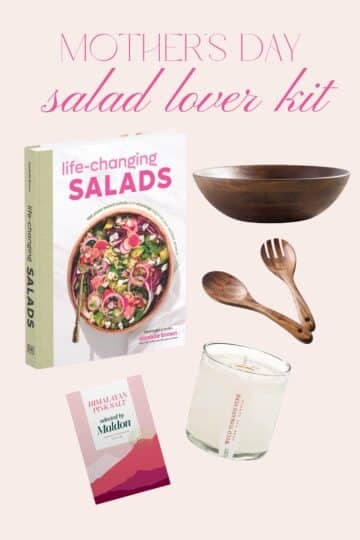It goes without saying that a well-planned plant-based vegan diet is one of the healthiest, nutrient dense ways of eating for adults. We can thank all of the research and scientific evidence that exists today. But what about for children? Is a vegan diet safe for children?
With proper knowledge and planning, a plant-based diet contains all the proper building block so f a healthy diet. A nutrient dense, vegan diet contains healthy fats, protein, complex carbohydrates, and of course, an abundance of vitamins and minerals.
What are the benefits of feeding children a plant-based diet?
When it comes to raising children, however, some parents wonder if a plant-based diet, free of meat, dairy and eggs, is just as beneficial for kids. The question is: Is a vegan diet safe for children? The answer? Yes!
There is a misconception that it is unhealthy/unsafe for children or teenagers to consume a plant-forward diet without animal products.
Let’s unpack this myth.
Studies show that if nutrient and calorie needs are met, a well-balanced vegan diet is entirely healthy for children to adapt, as well.
In fact, there are some major benefits to raising your child vegan:
- Studies show that children that consume a vegan diet have a healthier relationship with their bodies. This decreases the rate of eating disorders amongst vegan children later on in life.
- This is likely due to the abundant amount of nourishing foods that are offered in a vegan diet. In short, this creates a healthy relationship to food and diminishes the likelihood of restriction as they grow older.
Are there health benefits for children who consume a plant-based diet?
Research also shows that a vegan diet decreases the risk of childhood obesity, heart disease, diabetes and high cholesterol, all of which can be maintained well into adulthood.
Additionally, children raised on a vegan diet have higher levels of important vitamins and minerals, such as folate, fiber, carotenoids, and magnesium.
Many children are lacking in fiber and are often prescribed laxatives by their pediatricians.
Is it difficult to plan a plant-based diet for children?
A plant-based diet for children may seem as though it takes a bit more planning than a traditional diet.
However, once you learn about plant-based protein alternatives and the ins and outs of making plant-centered meals, it’s actually quite simple.
Children’s bodies are rapidly growing and developing throughout the different stages of adolescence. Therefore, it is important to plan a child or teenager’s meals to contain carbohydrates, fats and protein as well as many colorful fruits and veggies.
As long as you are preparing well thought-out meals and snacks, it is entirely attainable to create wholesome and nutrient-dense vegan dishes for your children (without sacrificing taste)!
Continue reading to learn more about the most important vitamins and nutrients to keep in mind when raising vegan children!
Vitamins and Nutrients to be Mindful of When Raising Your Child Vegan:
Let’s break it down into macronutrients and micronutrients.
Macronutrients:
Protein: We all know that protein is a key part of everyone’s diet, no matter your age or what your diet looks like.
Many children are raised on animal proteins that are readily available at grocery stores and restaurants. It may take some initial research and education to learn about plant-based protein/meat alternatives.
However, that does not mean that vegan proteins are not plentiful and easy to find.
A few kid-friendly vegan protein sources include lentils, chickpeas, quinoa, beans, and tofu/tempeh. We recommend lentil, chickpea and bean pastas for your young ones!
Try our Vegan Chickpea Noodle Soup for a kid-friendly meal that is filled with delicious veggies and protein-packed chickpea noodles!
Healthy Fats:
An adult consuming a plant-based diet may be consuming a low-fat plant-based diet, especially if their cardiologist is trying to prevent or treat heart disease.
Save this for later?
Growing children, require more grams of fat per day than adults for their developing brains.
Fuel your children with avocado, olives, olive oil, coconut, flax seeds, hemp seeds, chia seeds, nuts like almonds and cashews and seeds like pumpkin, sesame or sunflower.
Micronutrients:
Vitamin b12: Vitamin B12 is the only vitamin that cannot be attained through (almost) any plant food sources, which means that most vegans will take a vegan B12 supplement throughout their lifetime.
There are many kid-friendly (and gummy!) varieties on the market that are easy to include in your child’s daily routine.
However, B12 is found in nutritional yeast, which is a savory vegan food source with an almost cheese-like flavor – perfect to add to any children’s meal!
Our Vegan Copycat Panera Mac and Cheese is a great source of nutritional yeast and definitely kid-approved!
Vitamin D: the reality is that most people struggle to get an adequate amount of this vitamin in their diet.
Vitamin D helps to absorb the calcium in the body. It also improves immune function, so it is especially important for children to get enough of it in their diet.
A few vegan sources of Vitamin D include mushrooms and fortified almond milk, orange juice and cereal.
Whether you are raising your child vegan or not, it is recommended that children (and adults!) take a Vitamin D supplement to make sure that they are fulfilling their needs. Never forget the power of the sun to increase Vitamin D, as well!
Riboflavin:
Riboflavin is an essential vitamin for a multitude of reasons.
Not only does it improve hair, skin, eye and liver health, but it also helps the body convert food to energy and acts as an antioxidant – just to name a few of its benefits!
Therefore, it is imperative that growing children get enough Riboflavin in their diets.
Luckily, many delicious vegan food sources contain this vitamin, such as almonds, whole grains, wild rice, tofu, sweet potato, green beans, broccoli, brussel sprouts and spinach!
Try our One Pan Vegan Dinner that is delicious, ready in 30-minutes and contains an abundance of Vitamin B2-containing ingredients that children will love!
Can you get enough calcium on a vegan diet?
Calcium: Calcium plays a major role in a child’s development when it comes to building and maintaining strong bones.
A vegan diet is filled with nutrient-dense and Calcium-rich foods. The most important part is just making sure that your child is consuming enough of them, especially during the rapidly changing stages of adolescence.
A few great vegan Calcium sources include bok choy, kale, broccoli, chickpeas, beans, peas, and lentils!
Make our Vegan Black Bean Brownies for a healthier take on a childhood classic!
So, is a vegan diet safe for children?
Of course, if you are a parent that is considering raising your child vegan, it is always important to discuss diet changes with your pediatrician or trusted healthcare practitioner first.
They will ensure that your child is developing at a healthy rate and fulfilling all of their nutritional needs.
Parents may request regular blood work to monitor this, as well as receive in-depth supplement and vitamin recommendations from their pediatrician.
This will ensure they are getting all of the vitamins and minerals that they need.
No matter what and how you feed your child – whether that is vegan or not – it is a great idea to make sure that your child is eating a plant-forward diet filled with plenty of fruits and vegetables.
This will provide them with important nutrients and start the habit of healthy eating at a young age! Now you know how to answer when someone asks you “is a vegan diet safe for children?”, you can tell them yes!





Mary Jane Larson says
My book is coming may 18 😊
Katie says
I’m curious if feeding your child a vegan diet includes/ed breast milk.
Taylor From HealthyGirl Kitchen says
Hi! Yes, for us it does include breast milk. 🙂